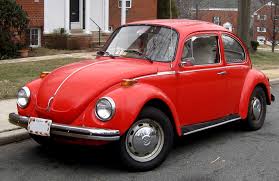
By Karianne Johnsen, International Wit
To begin investigating how humor is used in American advertisements versus those in the United Kingdom, we turned to one international car company to get a closer look at some of its recent humorous ads. Volkswagen, known for its infamous 1959 “Think Small” campaign, has repeatedly ranked in the top 10 list of the world’s most valuable automotive brands, according to Brand Directory.
To begin investigating how humor is used in American advertisements versus those in the United Kingdom, we turned to one international car company to get a closer look at some of its recent humorous ads. Volkswagen, known for its infamous 1959 “Think Small” campaign, has repeatedly ranked in the top 10 list of the world’s most valuable automotive brands, according to Brand Directory.
One of Volkswagen’s most memorable advertisements in the U.S. was its “The Force” commercial in the 2011 Super Bowl. An ambitious little boy is seen dressed as Darth Vader trying to use “the force” on various household items. It brings out the child in all of us as we reflect on our Star Wars fandom as he makes attempts on his dog, a washing machine and a sandwich. The power of the Volkswagen Passat, with the help of his Dad, shows the young Anakin that he does have it in him. You can’t help but laugh at the child in costume whom you most likely associate with yourself. It creates a connection with the audience.
Using a similar approach of nostalgia in the U.K., Volkswagen targeted dog owners through a “Woofwagen” campaign in 2013. It’s said that our dogs look like our owners, as Volkswagen portrays with different breeds driving different models. Each car is meant to match the owner and dog’s personality. There’s nothing funnier than seeing animals impersonate humans. Perhaps VW chose to feature dogs in their commercials because they know how much the Queen loves her corgis. It touches our heartstrings, same as the little boy did running around as Darth Vader.
In terms of reaching our personal attachments, like our childhood or furry companion, we see humor being shown in the same way in both advertisements. To us, we could see each ad being shown in either country.
Using a similar approach of nostalgia in the U.K., Volkswagen targeted dog owners through a “Woofwagen” campaign in 2013. It’s said that our dogs look like our owners, as Volkswagen portrays with different breeds driving different models. Each car is meant to match the owner and dog’s personality. There’s nothing funnier than seeing animals impersonate humans. Perhaps VW chose to feature dogs in their commercials because they know how much the Queen loves her corgis. It touches our heartstrings, same as the little boy did running around as Darth Vader.
In terms of reaching our personal attachments, like our childhood or furry companion, we see humor being shown in the same way in both advertisements. To us, we could see each ad being shown in either country.
 RSS Feed
RSS Feed
